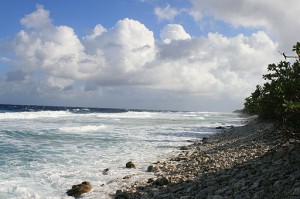Jennifer M. Klein, Esq.
Associate Director & Fellow
 A family of four was granted residency in New Zealand after arguing that they would suffer the adverse impacts of climate change if deported to their home country of Tuvalu. The New Zealand Immigration and Protection Tribunal, which issued a decision on June 4, 2014, considered the family’s appeal under the Immigration Act 2009. The Act provides a route for immigrants to remain in New Zealand where they can show “exceptional circumstances of a humanitarian nature that would make it unjust or unduly harsh for the appellant to be deported from New Zealand.”
A family of four was granted residency in New Zealand after arguing that they would suffer the adverse impacts of climate change if deported to their home country of Tuvalu. The New Zealand Immigration and Protection Tribunal, which issued a decision on June 4, 2014, considered the family’s appeal under the Immigration Act 2009. The Act provides a route for immigrants to remain in New Zealand where they can show “exceptional circumstances of a humanitarian nature that would make it unjust or unduly harsh for the appellant to be deported from New Zealand.”
However, while the Tribunal acknowledged that climate change impacts may affect enjoyment of human rights, it explicitly declined to reach the question of whether climate change provided a basis for granting resident visas in this case. Instead, the Tribunal based its finding of “exceptional circumstances” on other factors, including the presence of the husband’s extended family in New Zealand, the family’s integration into the New Zealand community, and the best interests of the children.
See the complete decision here.

